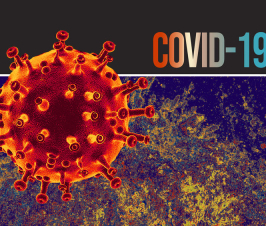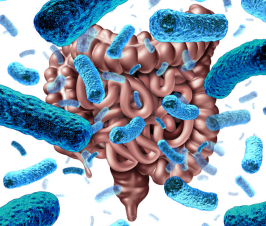How Probotics Potentiate Antibody Production post Vaccination
The immune system is divided into 2 subtypes, the innate immune system and the adaptive immune system. Innate immunity includes physical barriers to the exterior world like skin and mucous membranes, but also includes cells that patrol the body and “consume” anything that is considered foreign. The adaptive immune system is more complex as it has the capacity to remember previous invaders. The adaptive immune system produces antibodies, specialized proteins that recognize an invader it has already fought prior and remembers how to remove it from the body.
Vaccinations play on the adaptive immune system, passively inoculating the body with a very small amount of weakened or dead foreign invader via injection or oral route. The idea is that the adaptive immune system will build antibodies against this invader and remember it the next time the body becomes exposed with it again.5 This is a very effective practice, however, there are limitations.
When someone is ill or has a compromised immune system, the body is already busy contending with an invasion, making this an unfavorable time to administer a vaccine. Vaccines need your immune systems full attention in order to produce enough antibodies and to offer protection.
Fortunately, antibodies can be tested via the blood. Levels of these various antibodies can be evaluated for all types of vaccines, therefore giving you a true picture of how protected you truly are. Antibodies are often drawn when determining if a booster, another dose, of a specific vaccine is need like prior to travel or attending school.
It is well known that microbes in our environment play a role in the way our immune system develops. From birth, exposure to mothers microbes, to household pets, siblings and daycare all helps to shape our immune system into what it is today. It has been shown, those raised in an overly sterile environment, where the over use of antibacterial products, dishwashers and sanitizers are the norm, have an increase risk of developing allergies.2
It is this fact that probotics, healthy bacteria, have been utilized to enhance the ability for vaccines to create a robust amount of antibodies. A study demonstrating the use of two common phylum of proboitics normally found in breast milk, Lactobacillus and Bifidobacillus species, prior and during routine vaccinations in infants overall shows a stronger ability to produce antibodies. 1
The immunomodulatory effect that probiotics have on antibody production has been shown to be strain specific. For example, one study found a strain of Lactobacillus, (Lactobacillus GG), to be more effective at raising antibody levels against typhoid post vaccination compared to Lactobacillus lactis.4 Another study found a specific strain of bifidobacillus (bifidobacillus longum) to potentiate protection against flu in a group of elderly individuals given the flu vaccine in addition to the probiotic supplement when compared to placebo.6
Although research is pointing into the direction of probiotic strain specific vaccination antibody potentiation, it is best to build up your digestive flora via food and environment. In nature, starting from the birth with breast milk to varied food choices into adult hood, our body is inundated with an assortment of probiotic flora. This diversity offers a broad range of protection against invaders. Strain specific probiotics can be considered prior and during vaccinations in order to offer further benefit.3
 Dr. Ashley Burkman received her Doctor of Naturopathic Medicine degree from the National University of Health Sciences in Chicago. She is deeply rooted in classical naturopathic medicine, practicing the belief that the human body has an innate ability to heal itself. She works with patients toward lifestyle adjustments in order to bring about long-term health. Viewing the body as an integrated whole and addressing all aspects of what determines health is the cornerstone of both naturopathic medicine and Dr. Burkman’s practice.
Dr. Ashley Burkman received her Doctor of Naturopathic Medicine degree from the National University of Health Sciences in Chicago. She is deeply rooted in classical naturopathic medicine, practicing the belief that the human body has an innate ability to heal itself. She works with patients toward lifestyle adjustments in order to bring about long-term health. Viewing the body as an integrated whole and addressing all aspects of what determines health is the cornerstone of both naturopathic medicine and Dr. Burkman’s practice.
Dr. Ashley Burkman is a licensed naturopathic physician in the state of Connecticut. Commitment to the growth of her profession has lead her to participate in the several campaigns to expand the scope of practice of naturopathic physicians in several states. She is also a member of both the Connecticut Naturopathic Association and American Association of Naturopathic Physicians.
Dr. Burkman, an Iowa native, enjoys perusing local farmers markets, spending time with friends and family, and searching for new hiking trails to conquer. She attends comedy shows and baseball games regularly and has a soft spot for cats.
Dr. Burkman and Dr. Lauren Young practice as fully licensed Naturopathic Physicians at Connecticut Natural Health Specialists, LLC, in Manchester, CT. Most major health insurances accepted. New patients are encouraged to call for an appointment.
References:
- Kukkonen, K, Nieminen, T, Poussa, T, Savilahti, E, Kuitunen, M. Effect of probiotics on vaccine antibody responses in infancy – a randomized placebo-controlled double-blind trial. Pediatric Allergy and Immunology. 2006;17(6):416-421. doi:10.1111/j.1399-3038.2006.00420.x.
- West, CE, Gothefors, L, Granström, M, Käyhty, H, Hammarström, MK, Hernell, O. Effects of feeding probiotics during weaning on infections and antibody responses to diphtheria, tetanus and Hib vaccines. Pediatric Allergy and Immunology. 2008;19(1):53-60. doi:10.1111/j.1399-3038.2007.00583.x.
- Maidens , C, Childs , C, Przemska , A, Dayel, I, Yaqoob , P. Modulation of Vaccine Response by Concomitant Probiotic Administration . National Center for Biotechnology Information. 2013. Available at: http://www.ncbi.nlm.nih.gov/pubmed/22845346. Accessed March 12, 2015.
- Fang, H, Elina, T, Heikki , A, Seppo , S. Modulation of humoral immune response through probiotic intake. FEMS Immunology and Medical Microbiology. 2000;29(1):47-52. doi:10.1016/S0928-8244(00)00187-5.
- How do Vaccines Work?. How do Vaccines Work?. 2011. Available at:http://www.health.ny.gov/prevention/immunization/how_vaccines_work.htm. Accessed March 10, 2015.
- Namba, K, Hatano, M, Yaeshima, T, Takase, M, Suzuki, K. Effects of Bifidobacterium longum BB536 Administration on Influenza Infection, Influenza Vaccine Antibody Titer, and Cell-Mediated Immunity in the Elderly. Bioscience, Biotechnology, and Biochemistry. 2009;74(5):939-945. doi:10.1271/bbb.90749.

















